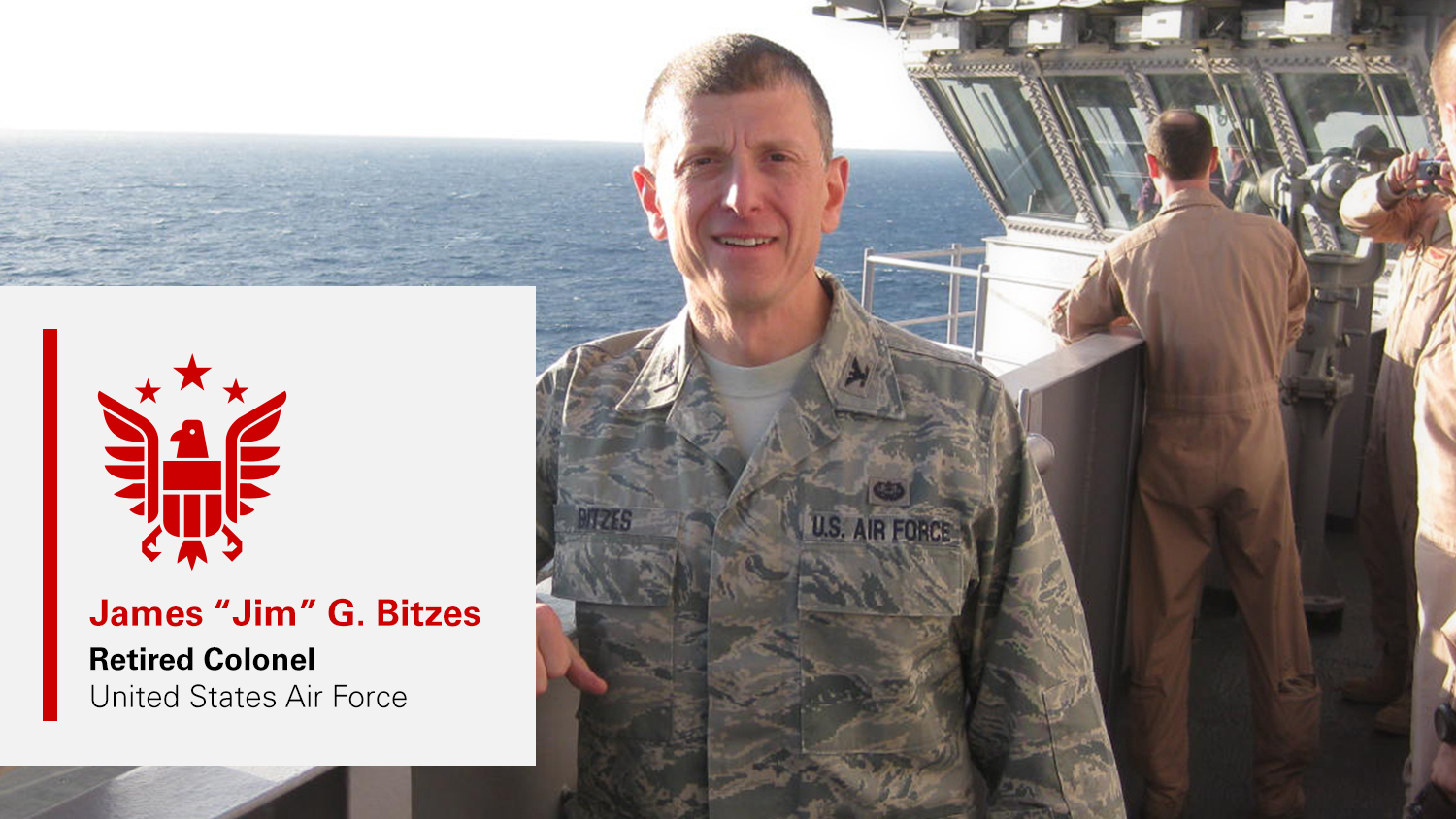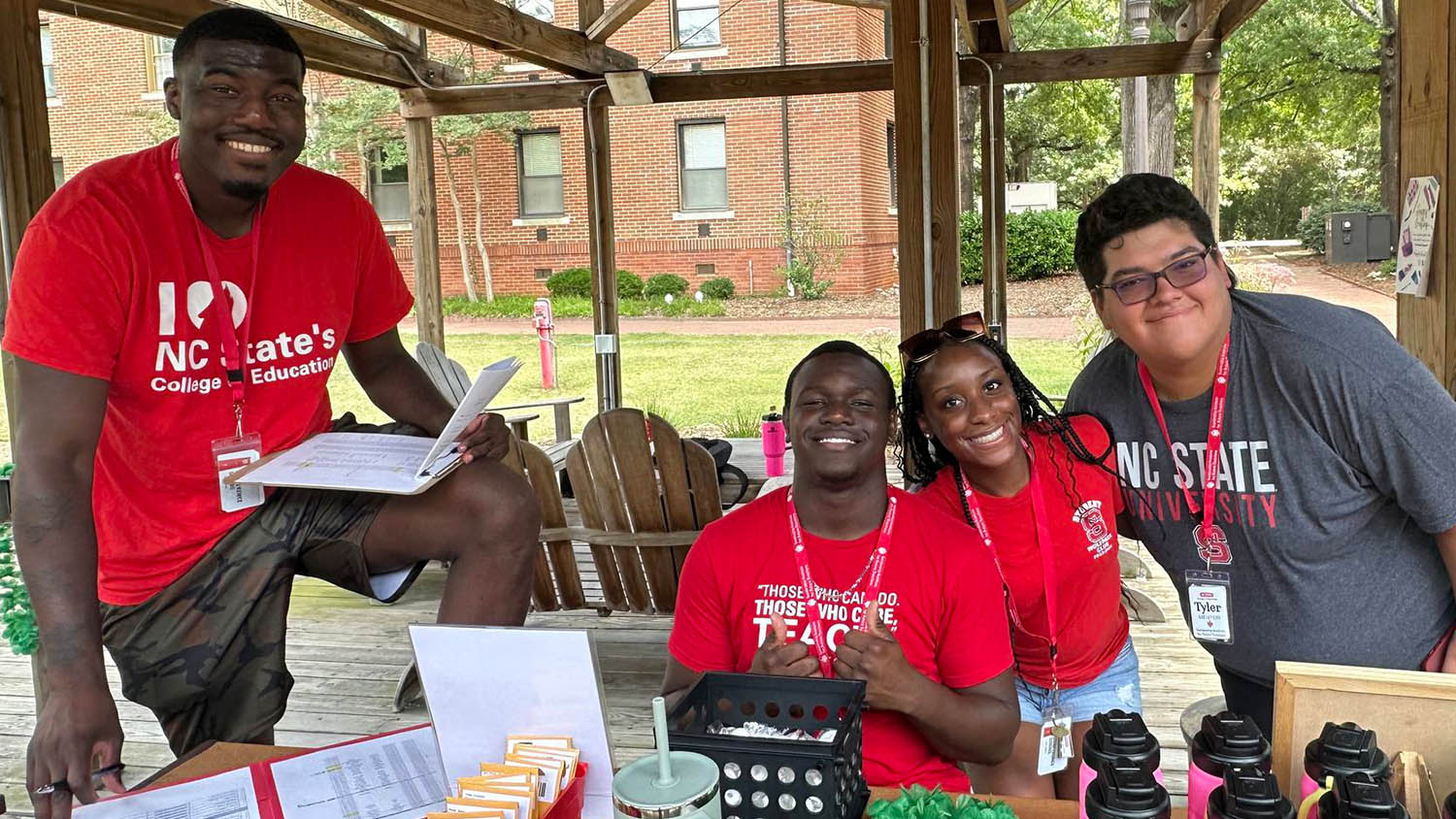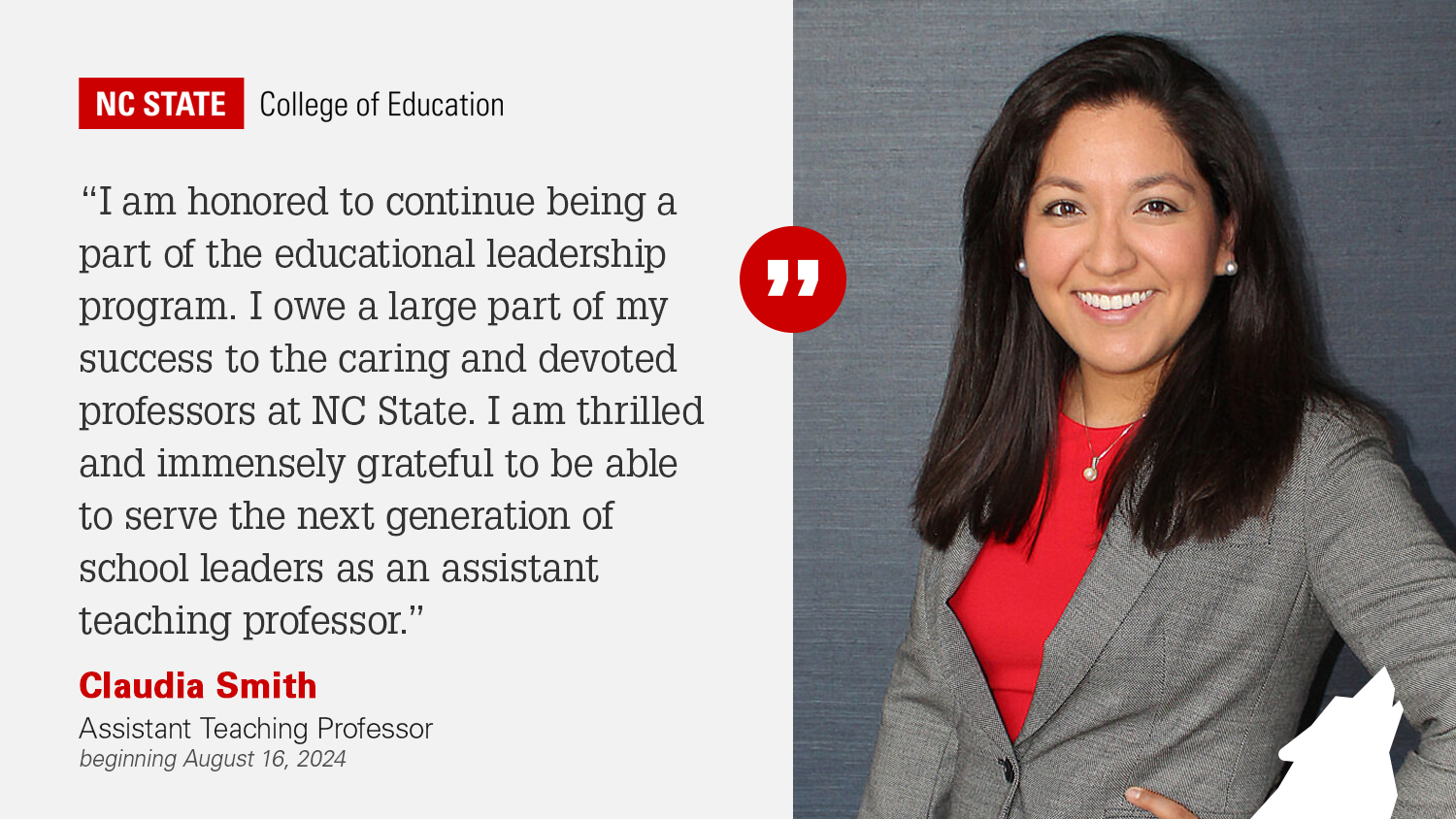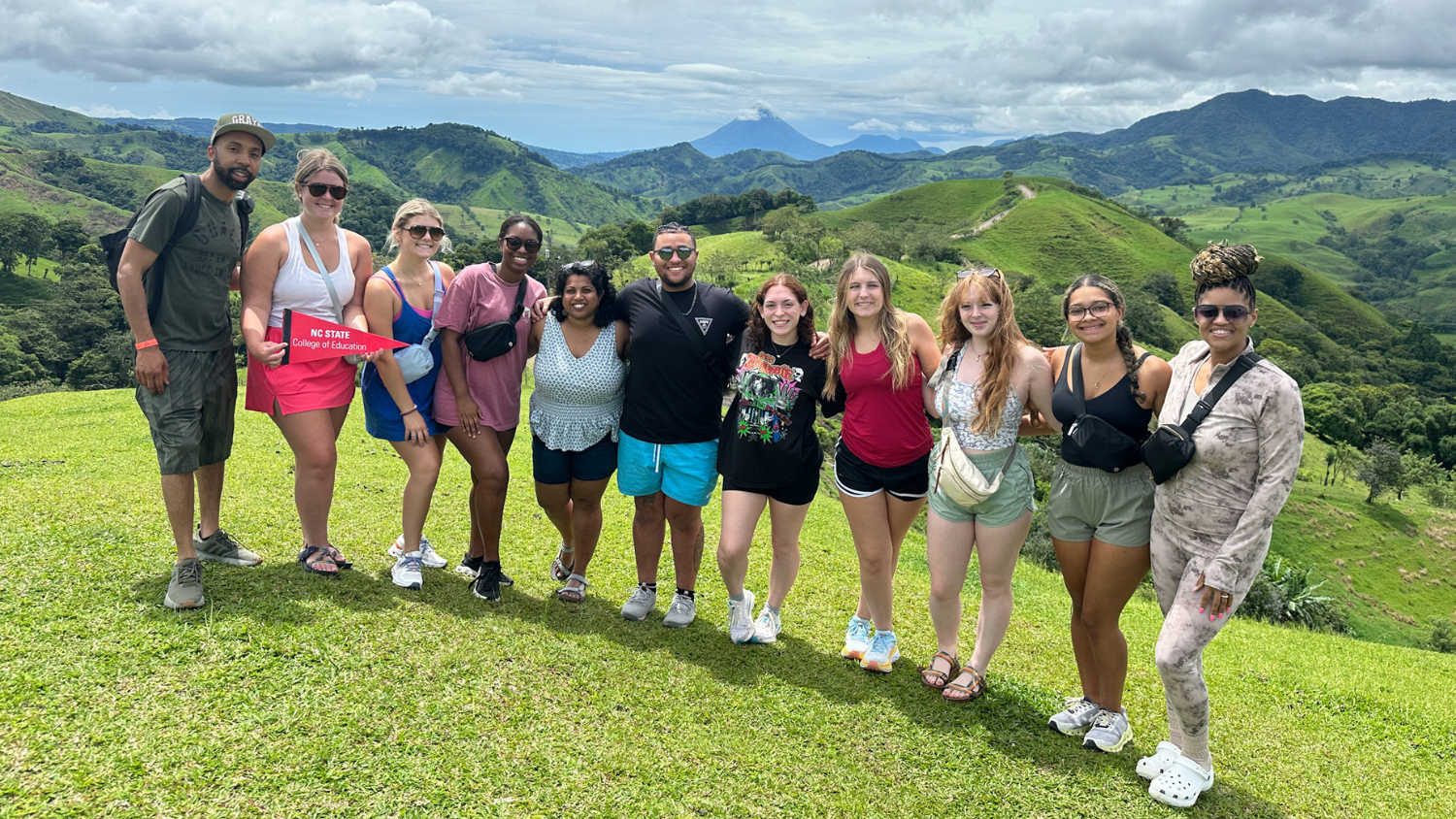Retired United States Air Force Colonel James “Jim” Bitzes ‘21MAT Plans to Bring Over 25 Years of Military Experience into the Social Studies Classroom

As a colonel in the United States Air Force for 23 and a half years, James “Jim” Bitzes ‘21MAT lived and worked in 17 countries — an experience he hopes to bring into the classroom.
When Bitzes graduated from Creighton University School of Law and landed a position with a litigation firm, he had no idea that more than 30 years later, he would find himself back in the classroom pursuing a career as a social studies teacher.
After about a year of practicing law, he applied to become a U.S. Air Force Judge Advocate and was commissioned as a First Lieutenant in the United States Air Force.
“It wasn’t enough. I’d always wanted to serve my country in the military,” he said. “Service has always been a big part of what drives me. It’s how I was raised.”
History, civics, political science, geography and law defined his career as an officer. Bitzes found himself deployed or stationed in leadership roles in foreign countries, serving in special operations, air operations, counter-intelligence and cybersecurity.
“I interacted with professionals across government, including the intelligence community, the State Department, the Department of Justice and other various law enforcement agencies. All that experience has given me an immense appreciation for our democratic system and the people who support it, both in and out of government,” he said.
“I believe that my experience will help me bring the social studies subject matter to life for my students and better prepare them to be fully participating citizens in civic life.”
For Bitzes, pursuing a Master of Arts in Teaching with a concentration in secondary social studies education is career 2.5. When he retired from the military in 2014, he worked as an independent consultant in the cyber and insider risk space, before working for Ernst & Young in a similar position. But something was still missing.
“I did some real soul searching. When I looked back at my Air Force career and considered what I had done that excited me most, I remembered my time teaching as an assistant professor of legal studies at the United States Air Force Academy,” Bitzes said. “That combined with my dad’s career, motivated me to decide to pursue teaching.”
His dad and all his uncles had served in World War II and Korea, and his dad had spent his professional life as a teacher in Omaha Public Schools, earning his Ph.D. in history when he was 50. “So, at 55, I guess I’m behind the curve,” Bitzes said.
With seven years of teaching experience under his belt, he knew he lacked education in pedagogy. When researching teacher education programs, he knew he needed more than just certification. He chose the NC State College of Education because of its reputation and because “it focused on teaching people with solid academic backgrounds how to be teachers.”
As a retired Air Force Colonel and former attorney, Bitzes says the MAT program is preparing him to be the type of teacher he wants to be. He is learning how to provide students with a curriculum that is engaging, student-centered, relevant and inquiry focused.
“Teaching is art, philosophy and science. Our MAT program professors push all of us to examine ourselves, learn about the various philosophies that have underpinned education, develop an understanding of learning and education psychology and practice the art of teaching,” he said. “As a former military leader, I can say, unequivocally, that our professors get leadership and that teachers are leaders.”
5 Lessons Learned from His Military Career that Will Carry Over into the Classroom
- Be positive. “Nothing destroys a unit faster than negative attitudes. I suspect classrooms are the same.”
- Grow your subordinates. “Our students are our subordinates, but they are our responsibility. Every student deserves a fully equal chance to learn. Our democracy depends upon it. Our students are the mission.”
- Crisis, viewed through the right lens, is opportunity. “We have to help our students see that there’s always one more thing you can do to make a difference.”
- Set high expectations. “People perform to expectations, high or low.”
- Integrity is everything. “This one hopefully speaks for itself.”
- Categories:


